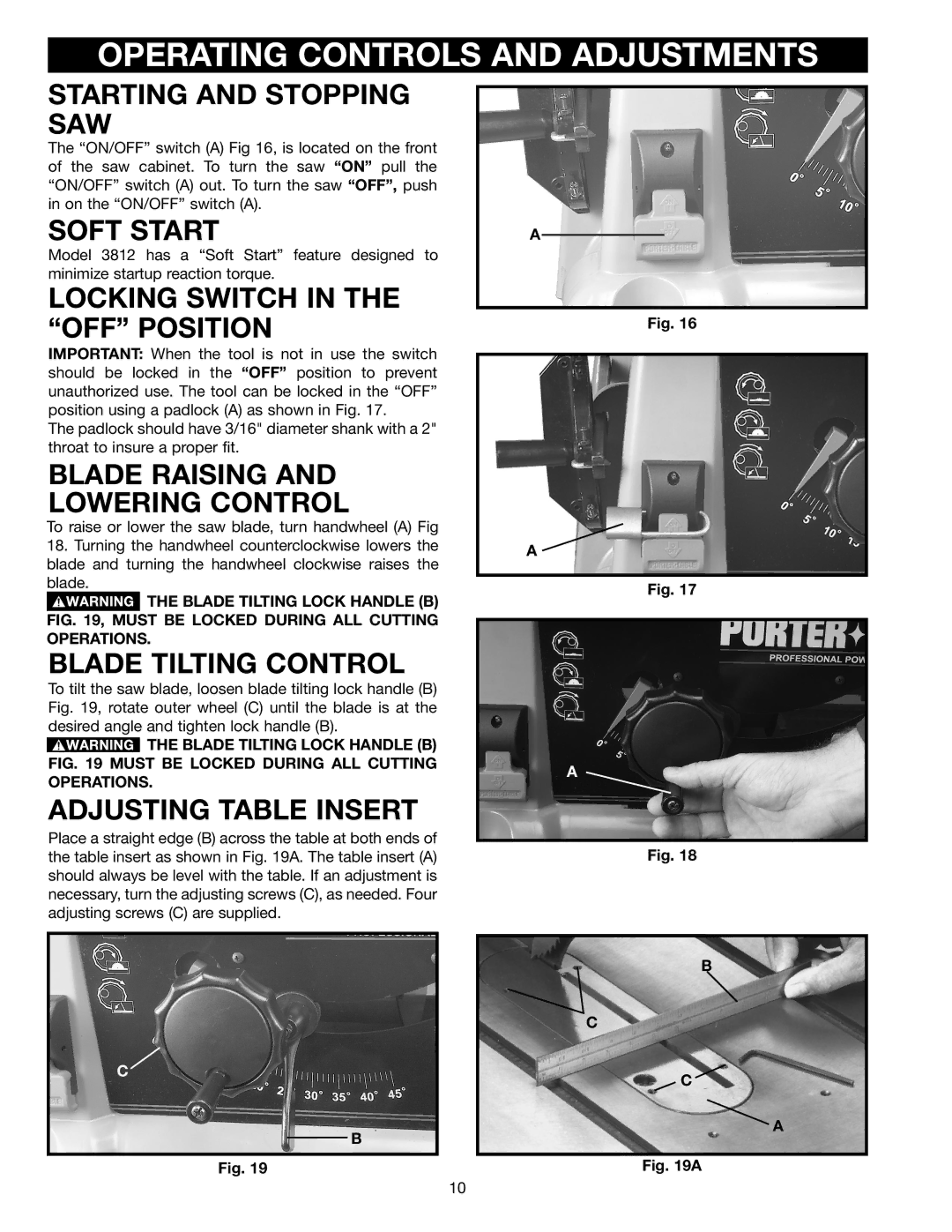
OPERATING CONTROLS AND ADJUSTMENTS
STARTING AND STOPPING SAW
The “ON/OFF” switch (A) Fig 16, is located on the front of the saw cabinet. To turn the saw “ON” pull the “ON/OFF” switch (A) out. To turn the saw “OFF”, push in on the “ON/OFF” switch (A).
SOFT START
Model 3812 has a “Soft Start” feature designed to minimize startup reaction torque.
LOCKING SWITCH IN THE “OFF” POSITION
A
Fig. 16
IMPORTANT: When the tool is not in use the switch should be locked in the “OFF” position to prevent unauthorized use. The tool can be locked in the “OFF” position using a padlock (A) as shown in Fig. 17.
The padlock should have 3/16" diameter shank with a 2" throat to insure a proper fit.
BLADE RAISING AND LOWERING CONTROL
To raise or lower the saw blade, turn handwheel (A) Fig
18.Turning the handwheel counterclockwise lowers the blade and turning the handwheel clockwise raises the
blade.
![]() THE BLADE TILTING LOCK HANDLE (B) FIG. 19, MUST BE LOCKED DURING ALL CUTTING OPERATIONS.
THE BLADE TILTING LOCK HANDLE (B) FIG. 19, MUST BE LOCKED DURING ALL CUTTING OPERATIONS.
BLADE TILTING CONTROL
To tilt the saw blade, loosen blade tilting lock handle (B) Fig. 19, rotate outer wheel (C) until the blade is at the desired angle and tighten lock handle (B).
![]() THE BLADE TILTING LOCK HANDLE (B) FIG. 19 MUST BE LOCKED DURING ALL CUTTING OPERATIONS.
THE BLADE TILTING LOCK HANDLE (B) FIG. 19 MUST BE LOCKED DURING ALL CUTTING OPERATIONS.
ADJUSTING TABLE INSERT
Place a straight edge (B) across the table at both ends of the table insert as shown in Fig. 19A. The table insert (A) should always be level with the table. If an adjustment is necessary, turn the adjusting screws (C), as needed. Four adjusting screws (C) are supplied.
C
B
Fig. 19
A ![]()
Fig. 17
A
Fig. 18
B
C
C
A
Fig. 19A
10
